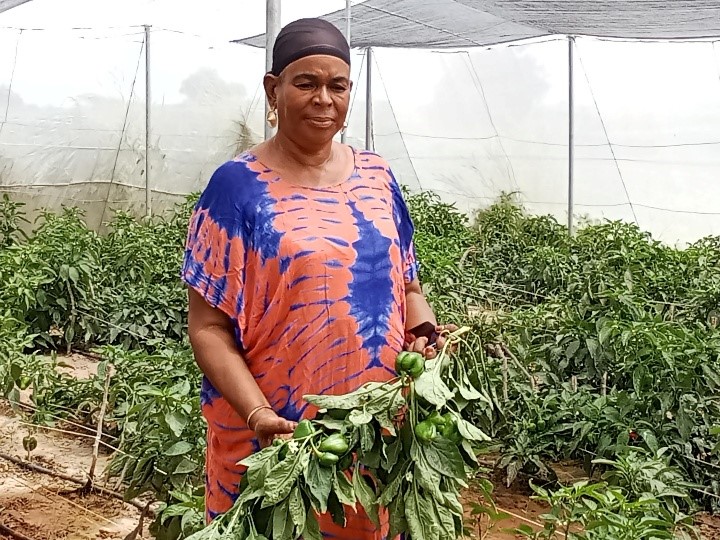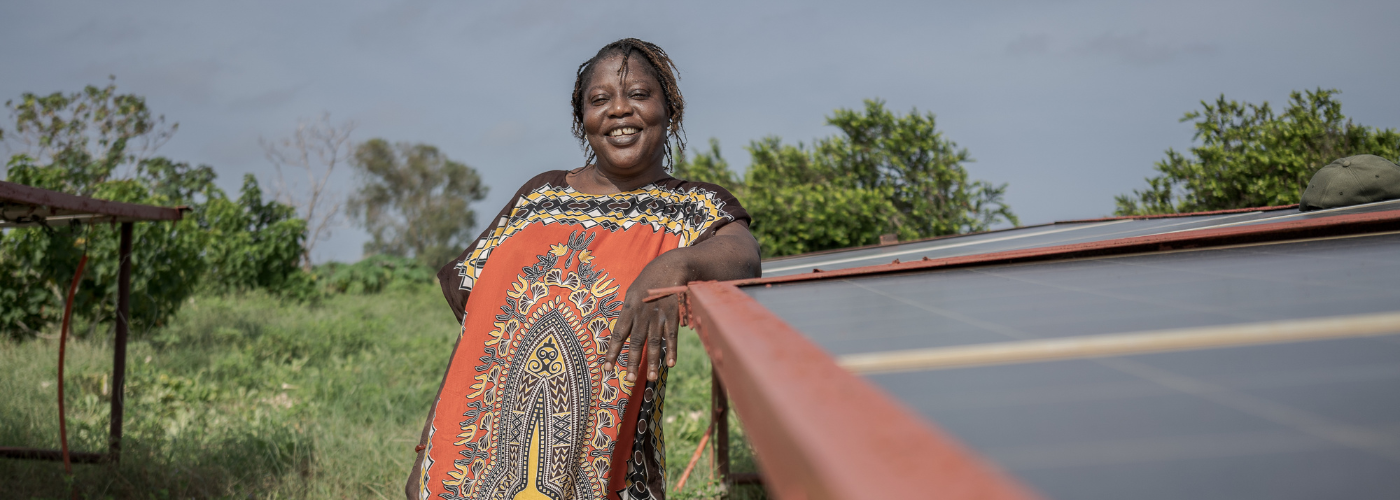By Mercy Corps
In Senegal, Mercy Corps is advancing women’s economic participation and environmental sustainability through the ENERGIA supported and Sida funded Foyré Rewbé 3 program. This initiative promotes the productive use of energy in sectors with high female representation, such as dairy, livestock, fisheries, market gardening, and the production and processing of rice and bananas. By integrating clean energy technologies across various stages of value chains—production, processing, packaging, and marketing—the program creates opportunities for women to join the workforce, establish businesses, and drive local economic development.
Aligned with Senegal’s energy transformation plan, which aims for universal electrification by 2025 and a renewable energy share of 40% by 2035, the project also addresses systemic barriers to women’s economic participation. By fostering equal access to clean energy and supporting inclusive policies, the initiative empowers women to lead climate-smart development while promoting sustainable livelihoods.
Key achievements in 2024
Establishing the “Gender and Energy Task Force”
Mercy Corps formed the Task Force Genre et Energie, a coalition comprising 24 members from civil society, the private sector, NGOs, media, and four key government ministries. The Task Force plays a pivotal role in driving national advocacy around the Gender and Energy Pact, ensuring the sustainability of results and mobilizing broader support for gender-equitable clean energy policies.
Creating a ‘Gender Integration Guide’ for the energy sector
In collaboration with institutional partners, Mercy Corps developed a Gender Integration Guide in early 2024. This tool equips policymakers and project implementers with practical strategies for embedding gender considerations into energy initiatives, reducing gender inequalities, and fostering women’s empowerment across the energy sector.
Training women farmers in sustainable agriculture
Through an agroecology training program, Mercy Corps supported 70 women farmers in adopting sustainable practices, including the production of organic fertilizers. This initiative has enabled year-round production, increased incomes, and access to higher-value markets.
Impact by numbers
- 899 women entrepreneurs supported: Mercy Corps mobilized 195 women-led enterprises representing 899 female entrepreneurs across three value chains through collaboration with agricultural cooperatives.
- 543 women empowered with solar equipment: Women from cooperatives in Potou, Fass Ngom et Gandiol gained access to solar-powered tools that significantly enhance agricultural productivity.
- 4 ministries engaged: Mercy Corps works directly with the Ministries of Petroleum, Energy and Mines; Agriculture and Food Security; Environment and Energy Transition; and Women and Solidarity to integrate gender-responsive practices into their policies and programs.
Bodiél Sow: A champion for women farmers

Bodiél Sow, a trailblazer in Senegal’s agricultural sector, identified the lack of representation for women in local cooperatives. She founded the Women Producers Cooperative of Potou, which now includes over 3,600 women members. Under her leadership, the cooperative provided 2,050 women with access to solar-powered equipment, transforming productivity and reducing post-harvest losses. Her efforts have enhanced community livelihoods and set a benchmark for gender inclusion in agriculture.
Mercy Corps’ work in Senegal exemplifies how integrating clean energy solutions with gender equity initiatives can transform local economies and create sustainable opportunities for women. As the program continues, it aims to further amplify the voices and contributions of women like Bodiél Sow, driving meaningful change across the region







